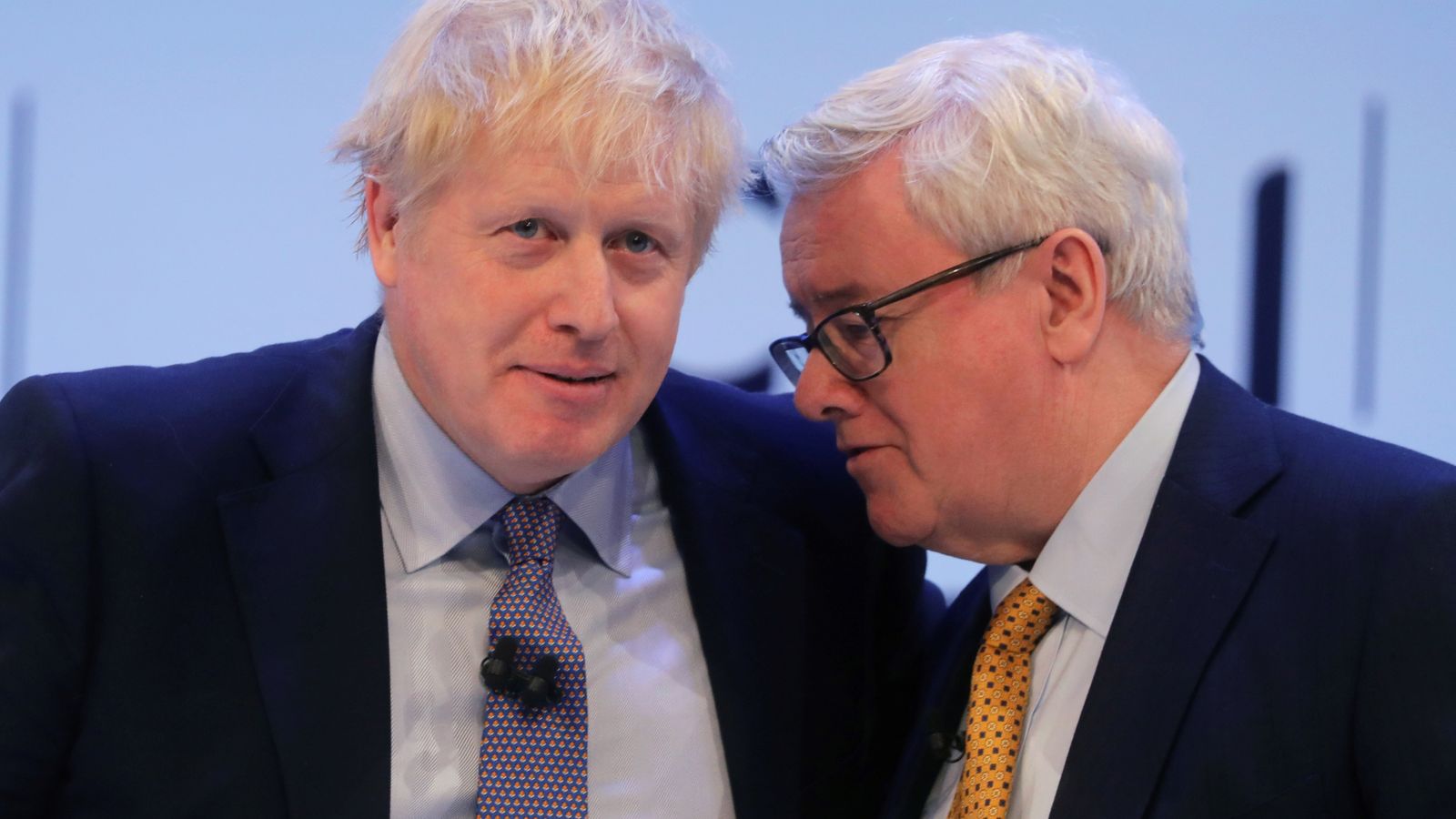The government and private sector should forge a new partnership to fuel a post-pandemic recovery that could include greater financial contributions from businesses to aid policy reforms, some of Britain’s leading bosses have told Boris Johnson.
Sky News has seen an open letter sent to the prime minister by the COVID Recovery Commission, a group set up last year that is chaired by the Tesco chairman, John Allan, and includes top executives from AstraZeneca, Heathrow Airport, Shell and Vodafone.
In it, the executives acknowledge that building a “stronger, fairer and more resilient” economy will involve “a recognition that business’s place in the 21st century will be to serve more than just shareholders”.
The letter will be accompanied by the publication of a report on Friday – Building Back Together – in which the Commission raises the prospect of private sector employers investing more into a more effective apprenticeship scheme than the widely criticised Apprenticeship Levy.
This could be through either fundamental reform of the Levy, which was introduced in 2017, or its replacement altogether, according to an insider.
The Commission’s suggestion is unusual in that, while others have called for the Levy to be abolished altogether, major employers have not previously signalled their willingness to increase their investment in exchange for meaningful reforms.
People close to the group said it was also in discussions about proposing a major retraining and upskilling initiative, and a new framework for how business and government might collaborate to provide greater support for their workforces in areas such as mental healthcare provision.
The Commission’s other members comprise executives and board members from McKinsey, Babcock International, Admiral UK, Hitachi ABB and Blenheim Chalcot, the venture builder.
In the open letter to Mr Johnson, the business leaders argue that “there must be a renewed relationship between the state, private enterprise and society based on the co-creation and co-delivery of initiatives”.
There have been signs in recent months of a reinvigorated relationship between Downing Street and major business groups such as the CBI, following a protracted period in which ties became strained over the government’s handling of Brexit.
Mr Johnson has established a council of business advisers, which met for the first time last month.
The COVID Recovery Commission acknowledged in its letter that for the relationship to work, the private sector would have to “step up”.
“Business already plays vital roles in our society, including as employers, investors, and advisers, creating jobs and driving economic growth,” the letter said.
“However, the role of businesses can, and should, go beyond this traditional view.
“Firms such as those run by our Commissioners increasingly see themselves as supporting the delivery of shared societal goals in ways that go beyond their core business activity.”
As part of aiding the post-COVID recovery, the Commission said the UK would require “a much more focused industrial strategy based on an honest assessment of our existing and future strengths”.
It cited fintech – which is the subject of a separate report being published on Friday by the businessman Ron Kalifa – and life sciences as two of the sectors deserving greater ministerial focus.
Ministers must also deliver an energy transition which “ensures all communities benefit from the green growth opportunities, including those that have traditionally been in carbon-intensive industries”, it added.
The letter also contained a commitment from its signatories playing an active role in delivering “a fair and green recovery…as employers, investors and advisers and through their community footprint”.
“This is particularly true for large businesses who tend to have a greater capacity to help workers to retrain, the capital to invest in world-leading infrastructure and the expertise to help suppliers become greener and more productive.”
The Commission, which was established last year by WPI Strategy, an economic and public affairs consultancy, added that next week’s Budget should represent “the start of a national conversation about what sort of Britain we would like to see emerge from the pandemic, starting with a renewed relationship between business and government based on collaboration and co-delivery”.
Its final report is expected to be published in the spring.






















